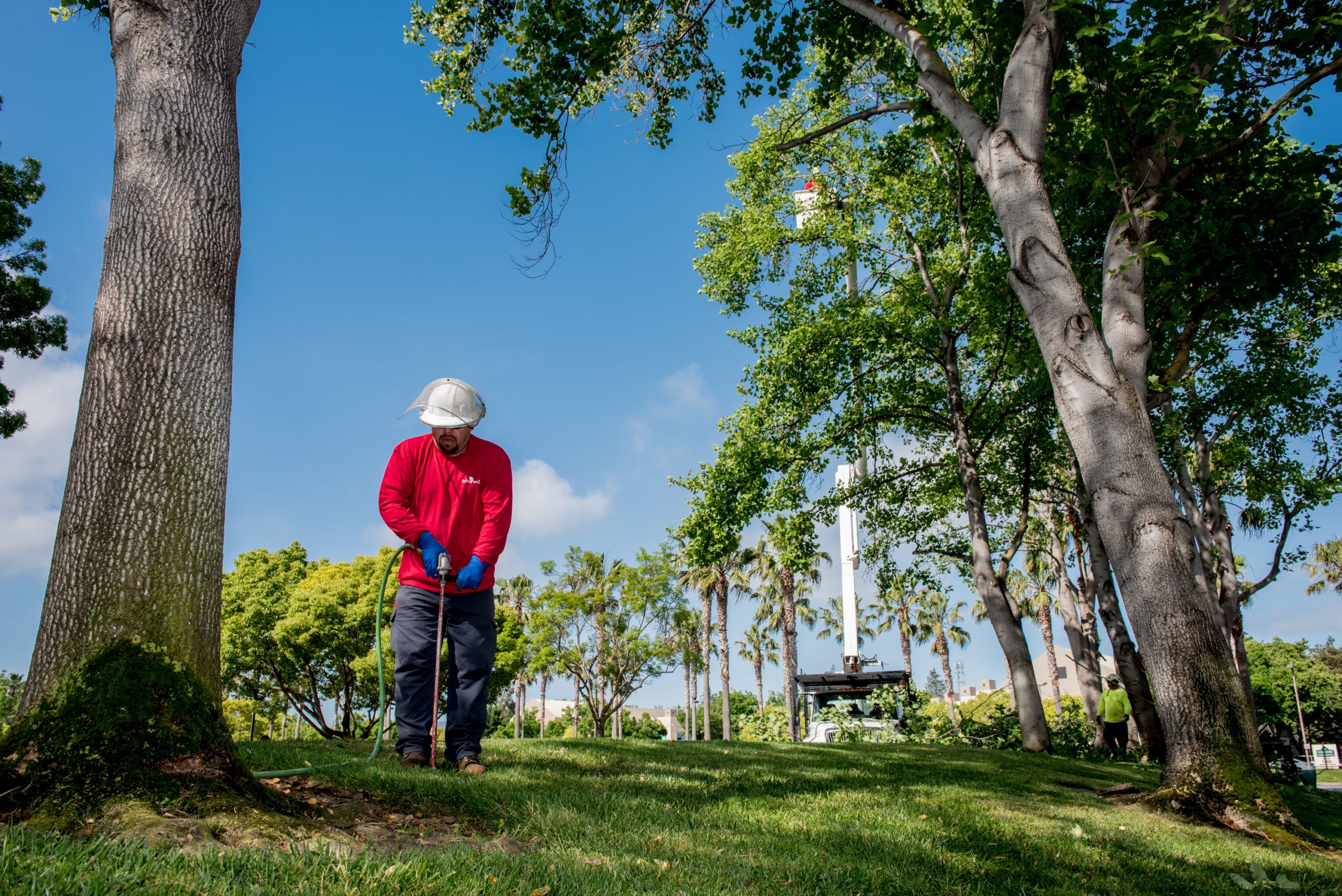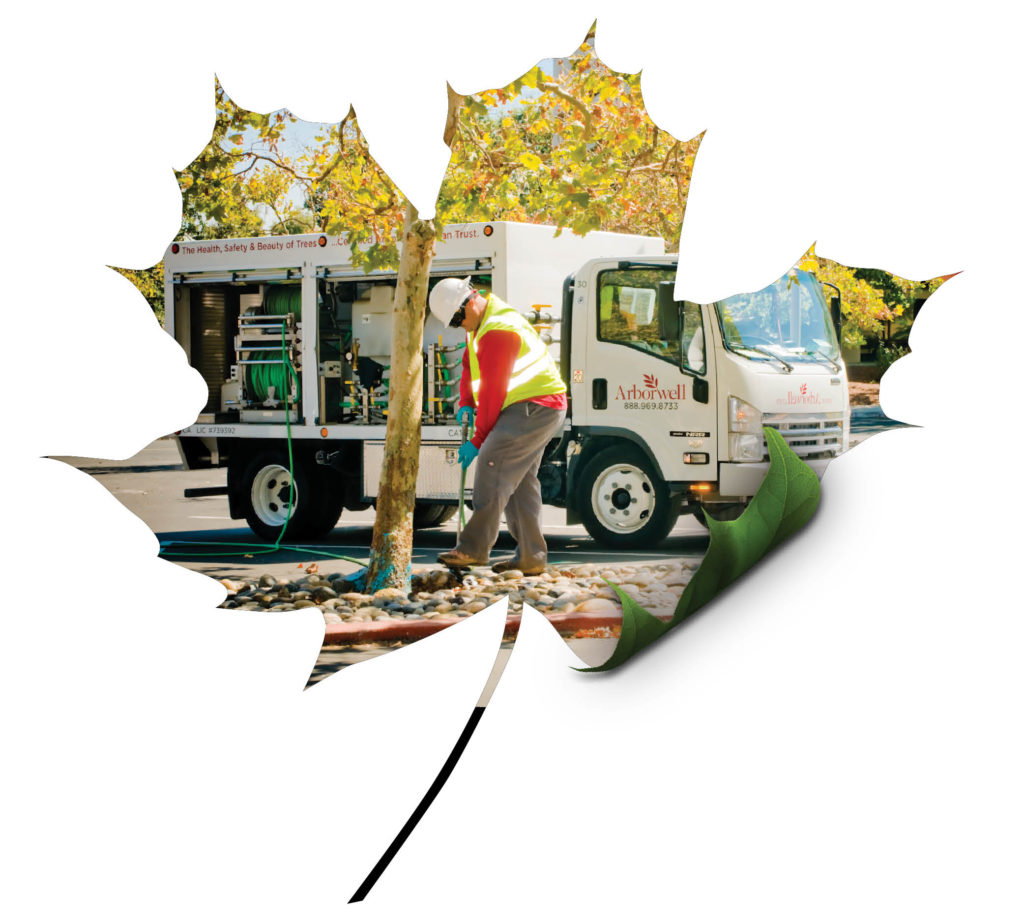
Why is Soil pH Important?
One measurement we use in helping to determine overall soil health is soil pH. This is a common concept and important to understand, but is only one of many measurements we use to determine overall soil health. A good soil health recommendation will take many factors into consideration, but soil pH is the starting point, as it helps us determine nutrient availability, the tightness of soils, and the ability of soil biology to thrive or not. The wrong pH may encourage fungal pathogens, while the proper soil pH range will encourage good soil microbes.
The pH scale runs from 0 to 14. Any pH reading below 7 is acidic and any pH above 7 is alkaline. A pH of 7 indicates a neutral soil. Most trees will grow in soils having a pH between 6.5 (slightly acid) and 7.2 (slightly alkaline). Ideally, maintaining a soil close to 6.8 is perfect for most trees. There are a few plants that prefer a soil pH below 6.0. These “acid-loving” plants include azaleas, rhododendrons, and blueberries. The soil pH for these plants can be lowered by incorporating elemental sulfur (S) into the soil. Since the soil acidifying response to elemental sulfur is slow, it should be applied and incorporated a year before planting.

When soil pH is too high, many nutrients start to become unavailable to the tree. They may exist in the soil in adequate amounts, but are tied up and not available. One example of this is with pin oak a maple trees. When the pH is too high, they will show signs of iron or manganese deficiency, which is characterized by yellowish green foliage. Most of the time, iron and manganese are found in good supply in the soil, but are not soluble and thus not available. When this occurs, it is important to treat both the short-term problem of yellow foliage and the long-term problem of soil pH.
Soil microbes are also somewhat dependent on proper pH too. When the pH is too low or too high, certain pathogen fungi or bacteria will tend to proliferate. When the pH is in the proper range, the good guy microbes tend to thrive. These guys battle the pathogens and help prevent disease infections from the soil borne pathogens. Other factors besides pH determine how healthy the good soil microbes are, so those factors must be taken into consideration, too.
Soil “tightness” is a third factor that is affected by soil pH, at least indirectly. When the soil pH is too low, there is often a lack of calcium in the soil. When supplied in the adequate ratio compared to other minerals, the soil micro-pores will be more open, thus allowing more water and air space at the root level.
When a soil problem, such as pH, is suspected to be contributing to the problems with a tree or trees, a comprehensive soil test is always recommended. If you are concerned about this problem, ask your Arborwell Arborist for an evaluation and recommendations.